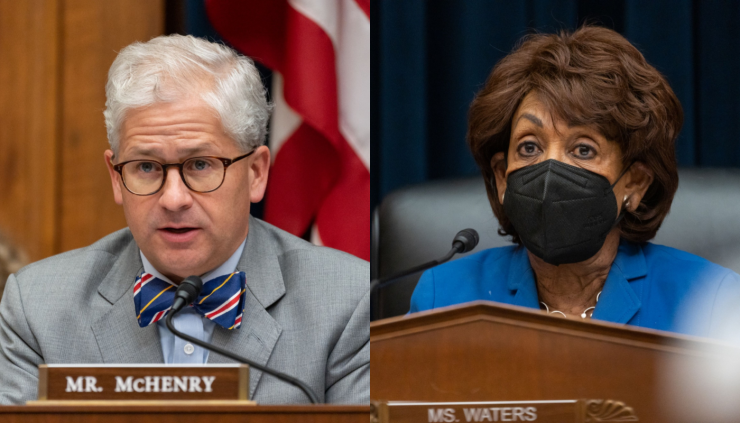WASHINGTON — Lawmakers on the House Financial Services Committee scuttled plans to hold a vote on legislation this week that could have imposed federal regulations on the stablecoin sector for the first time, pushing the effort to September.
Negotiations over a new stablecoin regime between the two wings of the House Financial Service Committee, led by Democratic Chair Maxine Waters of California and ranking Republican Patrick McHenry of North Carolina, had been strained heading into the weekend and the bill ultimately lacked enough support to warrant a markup vote later this week, according to two sources following the process.

In broad strokes, the draft legislation would have introduced strong, one-to-one dollar reserve requirements, a new licensing regime, and anti-money-laundering requirements for “payment stablecoins,” a type of cryptocurrency designed to maintain a steady value and be used in transactions rather than fluctuate as an investment. The committee has not yet released legislative text, but one source said a discussion draft could begin to circulate as soon as this week.
News of the delay was
Regulators have been saying for months that new legislation would be essential in order to set uniform standards for stablecoins, particularly in the wake of a broader downturn in the cryptocurrency market. Treasury Secretary Janet Yellen said during congressional testimony in May that it would be “
Before the markup vote was punted to September — following Congress’s summer recess in August — the draft legislation under discussion would have narrowed the universe of business entities that could legally issue stablecoins to federally regulated depositories as well as nonbanks that were licensed and supervised by the Federal Reserve. Stablecoin issuers would have been prohibited from accessing federal deposit insurance coverage and from making loans.
Sources said that disagreements over the role of algorithmic stablecoins in the regulatory framework, as well as oversight of the digital wallets that hold crypto assets for consumers, played a significant role in the legislative delay.
Majority staff on the House Financial Services Committee sought a ban on the introduction of new algorithmic stablecoins — such as TerraUSD, an “algocoin” that
Another source reported that Republicans balked at a Democratic push to introduce regulations and consumer protections around digital wallets, a technology used to securely store digital assets.
Notably, the draft was silent on whether a stablecoin should be legally covered as a security or commodity, leaving key questions of proper regulatory authority between the Securities and Exchange Commission and Commodity Futures Trading Commission without a congressional answer.
Representatives for the majority and minority staff on the House Financial Services Committee declined to comment.






